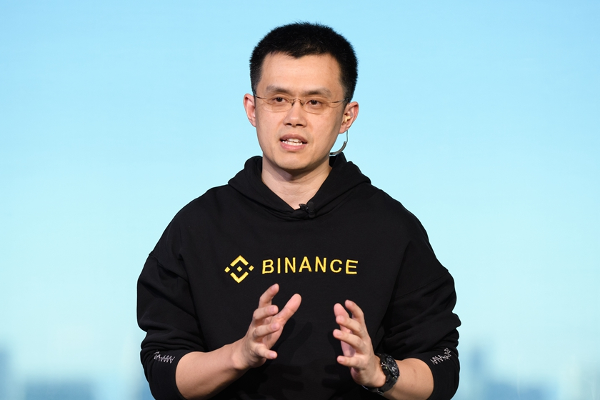The industrial chain is being completed at an accelerated pace, and quantum technology is making its mark.

The "Zu Chongzhi No. 3" quantum random circuit sampling problem is trillions of times faster than the fastest supercomputers; the world's first commercially available low-temperature scanning NV probe microscope provides new research tools for cutting-edge research in condensed matter physics; and multiple quantum companies have initiated IPO processes… From breakthroughs in key technologies to continuous exploration of commercial applications, quantum technology, which sounds like science fiction, is expected to accumulate strength and accelerate its integration into people's lives during the 15th Five-Year Plan period.
Quantum Applications: From Science Fiction to Reality
Quantum is the fundamental law governing the universe, possessing many amazing physical properties. For example, in the field of computing, quantum superposition and entanglement can be used to construct quantum computers, achieving exponential growth in computing power far exceeding that of classical computers. At a time when Moore's Law is increasingly approaching its limits, this opens a new path for breakthroughs in human computing capabilities.
Quantum technology, which sounds like science fiction, is rapidly moving towards industrial application and has quietly entered people's lives.
According to experts, from an industrial perspective, quantum technology mainly includes three industrial tracks: quantum computing, quantum communication, and quantum precision measurement, each utilizing different properties of quantum mechanics, and each is at different stages of industrial development.
Specifically, quantum computing has a huge market prospect and will have a disruptive impact on the future, but it is currently in the early stages of engineering and industrialization. A breakthrough in commercial quantum advantage is expected within the next two years, ushering in accelerated industrial development. Quantum precision measurement has a solid industrial foundation, with some high-end measurement equipment already applied in areas such as early disease screening and cutting-edge scientific research. Quantum communication has already undergone considerable engineering practice and is expected to provide solutions for secure communication in the post-quantum era.
In daily life, the applications of quantum technology are also beginning to emerge.
The secure network built by quantum secure communication is weaving an information security net for government affairs, finance, energy, and other fields. Precision measurement equipment such as magnetocardiographs and magnetoencephalograms based on quantum spin magnetometers can provide new solutions for the early diagnosis of diseases such as myocardial ischemia and Alzheimer's disease.
"After more than ten years of development, quantum technology has broken through the scope of 'cutting-edge research' and is becoming an important support for cultivating new productive forces. This leap from '0 to 1' to 'from 1 to 10' is a true reflection of the accumulated strength and rapid development of China's quantum industry," said Zhou Lei, Vice President of QuantumCTek Co., Ltd. The Quantum Industry Chain is Being Completed at an Accelerated Pace
To accelerate the transition of quantum technology from the laboratory to industrial applications, various parties are working together to accelerate the realization of more new technologies, products, and applications. The "puzzle" of the quantum industry chain is gradually being completed.
Taking quantum computing as an example, it has been learned that the team of Zhan Mingsheng and Xu Peng at the Innovation Academy for Precision Measurement Science and Technology, Chinese Academy of Sciences (hereinafter referred to as "Institute of Precision Measurement"), has recently made significant progress in the field of neutral atom quantum computing. By providing each qubit with its own beam of light, they have achieved high-parallelism, high-speed, and high-stability qubit addressing and manipulation, paving the way for large-scale neutral atom quantum computing.
Not only are cutting-edge technologies advancing, but the development of the quantum computing industry chain is also progressing steadily.
The Institute of Precision Measurement team has transformed cutting-edge atomic quantum computing technology into my country's first atomic quantum computer, "Hanyuan-1." This machine, a medium-scale noisy quantum computer (NISQ), has recently been put into commercial application, securing orders exceeding 40 million yuan, including its first overseas export order, marking a new stage in the commercialization of atomic quantum computing in my country.
Jin Yirong, a researcher at the Beijing Academy of Quantum Information Sciences, told reporters that my country's quantum computing industry is developing well, with a number of new startups emerging in the industrial chain, complete systems, and applications, especially in the industrial chain, which is developing rapidly.
"Take dilution refrigerators as an example," Jin said. "Superconducting quantum computing requires operation in an extremely low temperature environment close to absolute zero, but previously, dilution refrigerators capable of achieving this temperature were mainly controlled by overseas companies. However, in just a few years, more than ten companies and institutions in my country have emerged capable of independently manufacturing dilution refrigerators, and other supporting technologies for quantum computing are also rapidly improving."
The accelerated industrialization of quantum technology is particularly evident in key enterprises.
Zhou Lei revealed that QuantumCTek is pushing quantum key distribution equipment towards chip-based miniaturization, and the company is continuously participating in the construction of a "space-ground integrated" wide-area quantum secure communication network, making the once bulky and cumbersome equipment more accessible.
Wen Kai, founder and CEO of Bose Quantum, stated that the company is continuously advancing the research and development and iteration of kilobitant coherent optical quantum computers, consolidating its leading hardware advantage in the field of dedicated quantum computing.
“Regarding the quantum computing ecosystem, we are continuously expanding its application ecosystem to achieve a closed-loop technology system from initial planting and germination to full growth,” said Wen Kai.
The industry is entering a new phase of “accumulated strength leading to explosive growth”
Policies are paving the way for the development of quantum technology. The “Suggestions of the CPC Central Committee on Formulating the 15th Five-Year Plan for National Economic and Social Development” (hereinafter referred to as the “Suggestions”) proposes to “promote quantum technology, biomanufacturing, hydrogen energy and nuclear fusion energy, brain-computer interfaces, embodied intelligence, and sixth-generation mobile communication as new economic growth points.”
“The recent series of policy supports fully demonstrate the unprecedented importance my country attaches to the quantum technology industry. A series of targeted measures are injecting new vitality into the development of quantum technology,” said Zhao Bowen, Chairman of Anhui Guosheng Quantum Technology Co., Ltd.
Zhao Bowen stated that quantum technology is still in the critical stage of moving from the laboratory to the production line, with high technological risks and large capital requirements, necessitating more targeted financial support. “The measures proposed in the ‘Suggestions,’ such as ‘establishing a mechanism for future industrial investment growth and risk sharing,’ are of great and far-reaching significance in bridging the ‘valley of death.’”
Looking to the future of the quantum technology industry, the industry is full of confidence. Jin Yirong believes that with the implementation of the various measures in the "Suggestions," the quantum technology industry will experience vigorous development.
"Thanks to early R&D investment and new regulatory and risk-sharing mechanisms, the integration of quantum technology R&D and industrial transformation will be closer, and transformation efficiency will be significantly improved. At the same time, the scale of the quantum technology industry will grow rapidly, especially the 'singularity' of quantum computing applications, which is highly likely to occur during the '15th Five-Year Plan' period, making an industrial explosion inevitable," said Jin Yirong.
"The trend of China's quantum technology industrialization in the next five years can be summarized as 'accumulating strength for a breakthrough,'" said Ying Yong, Chairman of QuantumCTek Co., Ltd. "The quantum industry is still in the realm of future industries. In the next five years, we need to steadily accumulate strength in technology R&D, productization, and application, advancing the foundational work from technology to products and then to applications."









